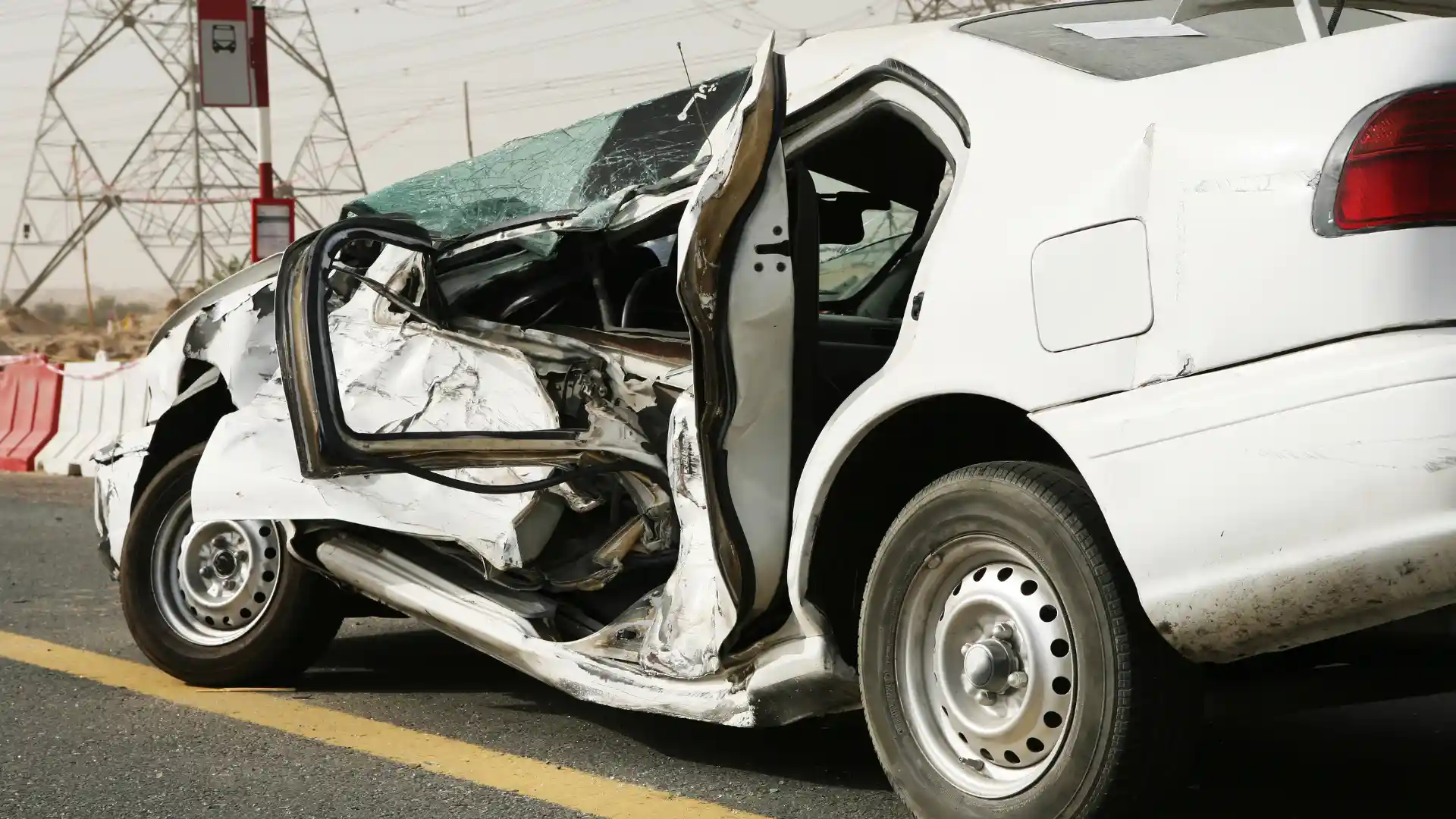Were you recently involved in a car accident in Providence, Rhode Island? Are you experiencing headaches, worsening pain, or other symptoms you didn’t notice immediately after the wreck? If so, you might wonder, “How long after a car accident can injuries appear?” Here’s what you need to know.
Common Types of Delayed Symptoms and Injuries After a Car Accident
Some crash injuries and symptoms do not appear immediately after a car accident. Adrenaline and shock can sometimes mask pain, so certain injuries only become noticeable after a few hours, days, or even weeks. These delayed symptoms are essential because they can indicate serious injuries requiring prompt medical attention.
Whiplash
Whiplash injuries occur when your neck snaps back and forth suddenly, which is common in rear-end collisions. This can strain the muscles, ligaments, and tendons in your neck. While some people with whiplash experience neck pain, headaches, or stiffness right after the accident, others might not notice any discomfort until hours or days later.
Concussions
A concussion happens when a blow or sudden movement injures the brain inside the skull, which can occur in a car accident even if you don’t hit your head directly. Concussion symptoms sometimes take hours or days to develop. Common examples of these symptoms include headaches, confusion, dizziness, or even mood changes.
Internal Bleeding
Internal bleeding is particularly dangerous because it often doesn’t show visible signs right away. A car accident impact can damage your organs or blood vessels, causing blood to leak into your body over time. Symptoms like deep bruising, swelling, dizziness, or fainting might appear hours or even days after the accident as the bleeding continues.
Herniated Discs
A herniated disc occurs when the soft center of a spinal disc pushes through a crack in the tougher exterior. This can happen due to the impact of a car accident, but the symptoms might not be immediate. Over time, you might feel pain in your back or legs, numbness, or tingling as the herniated disc begins to press on nearby nerves.
Shoulder Injuries
The force of the collision can seriously injure your shoulder, even if you don’t notice it immediately. Over time, you might begin to feel pain or stiffness in the shoulder, especially when moving your arm. Without treatment, the discomfort might gradually increase and affect your ability to carry out everyday tasks.
Psychological Trauma
Not all crash injuries are physical. Many car accidents also cause psychological trauma, which can affect your daily life significantly. You might not realize the emotional impact right away, but symptoms of post-traumatic stress disorder (PTSD), anxiety, or depression can develop in the days or weeks following an accident.
Why Do Some Injuries Take Time to Manifest After a Crash?
Some injuries take time to manifest after a car crash because of how the body responds to trauma. Immediately after traumatic events like car accidents, the body releases adrenaline, which can mask pain and other symptoms. Adrenaline helps you cope with the immediate stress of the incident but can also delay the sensation of injury. You might not feel pain or discomfort until the adrenaline wears off, which could take several hours or even a day.
Another reason an injury could take time to appear involves the nature of the injury itself. Some injuries, like soft tissue damage or internal bleeding, develop gradually. For example, muscle strains or ligament tears might start with minor discomfort that worsens as the affected area becomes more inflamed or swollen over time. Similarly, internal bleeding might start slowly and worsen as blood accumulates, only leading to noticeable symptoms like dizziness or pain later on.
Additionally, some injuries show delayed symptoms because of how the body heals. In the case of a concussion, the brain might take time to show signs of damage, such as headaches, confusion, or dizziness. The same can happen with injuries to the spine, where herniated discs or damaged nerves might not cause noticeable pain until days or weeks later.
What to Do If You Experience Pain After a Car Accident
 If you experience pain after a car accident, it’s essential to take it seriously, even if the pain seems minor at first. The pain could indicate a more severe injury that isn’t immediately obvious.
If you experience pain after a car accident, it’s essential to take it seriously, even if the pain seems minor at first. The pain could indicate a more severe injury that isn’t immediately obvious.
The first thing you should do is seek medical attention as soon as possible. A doctor can evaluate your condition, identify hidden injuries, and start treatment immediately. Early medical evaluation can go a long way in preventing crash injuries from becoming worse.
When you visit the doctor after an accident, be sure to describe all the symptoms you’re experiencing, even if they seem unrelated to the crash. For example, mention these symptoms to your doctor if you have headaches, dizziness, or neck pain. They might indicate a hidden condition like a concussion or whiplash, which are common consequences of car accidents. Your doctor might recommend tests, like X-rays or MRIs, to check for internal injuries that aren’t visible to the naked eye.
Timely medical evaluations are also key to supporting car accident injury claims. When you seek medical attention right after the accident, you create a clear record linking your injuries directly to the incident. Medical documentation is often crucial when you file an insurance claim or personal injury lawsuit. Insurance companies and courts look for evidence that your injuries directly resulted from the accident; medical records provide that proof. Delaying medical treatment can weaken your claim because it allows other parties to argue that your injuries are unrelated to the crash or not as severe as you claim.
Contact a Car Accident Attorney in Providence, Rhode Island
If you’ve been in a car accident and are experiencing pain or other symptoms, don’t wait to get the help you need. Contact the Law Offices of Ronald J. Resmini, Accident & Injury Lawyers, Ltd. today for a free initial consultation. Our team of experienced Providence car accident lawyers is here to listen to your situation, answer your questions, and discuss your legal options. Call us now at (401) 444-4444 and take the first step toward protecting your rights and securing your support.
Related Posts:
RI Personal Injury Attorney: Common Car Accident Injuries
How Long After a Car Accident Can You Claim Injury?
Compensatory vs. Punitive Damages in Rhode Island

